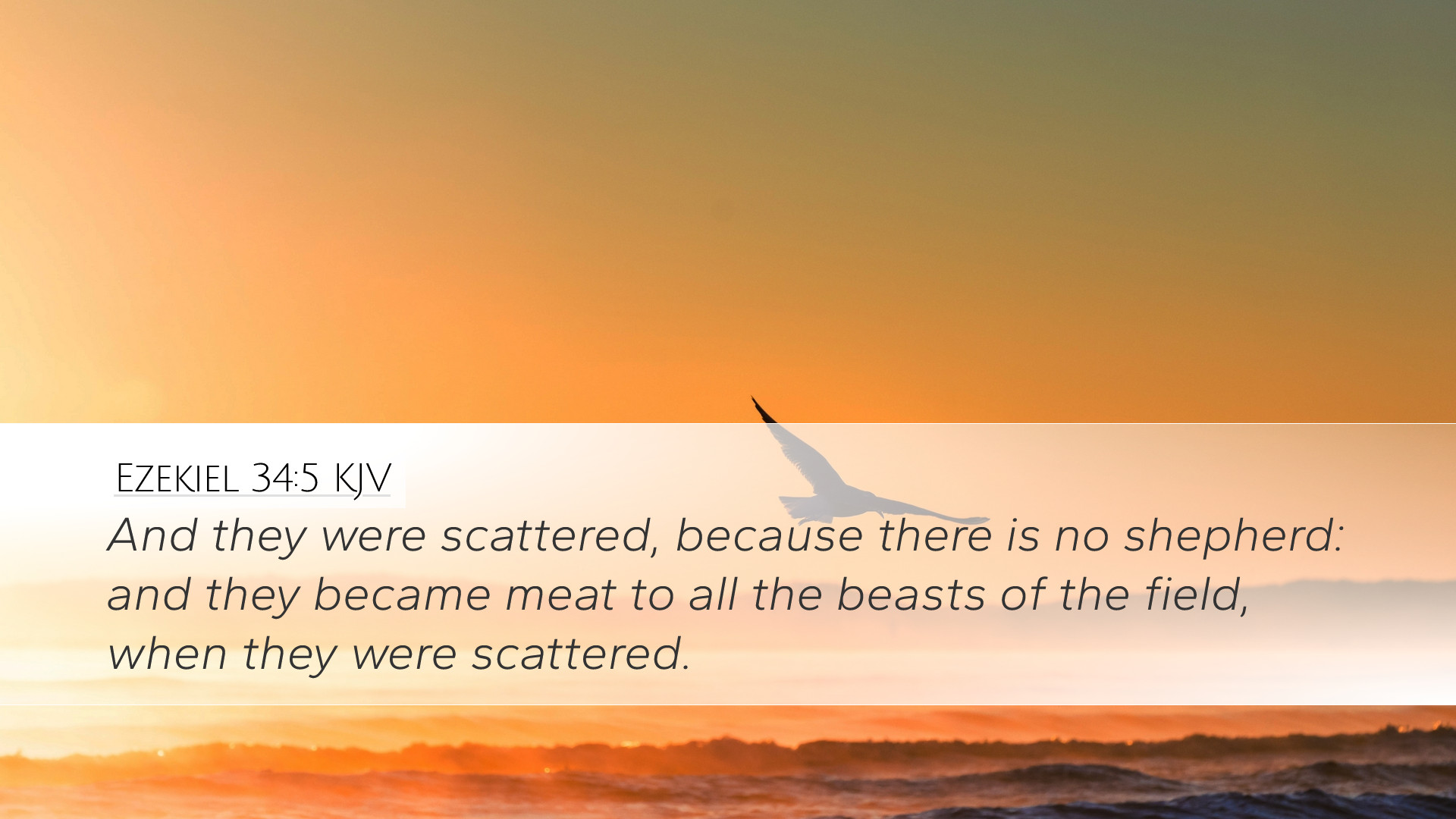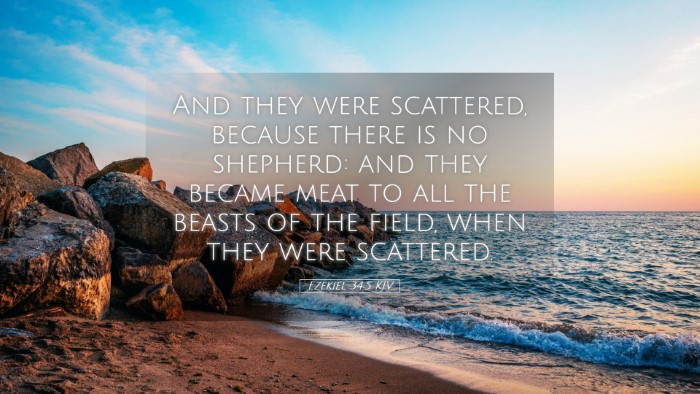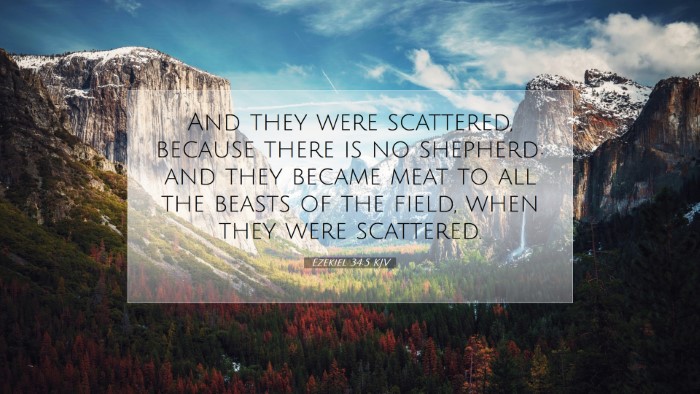Ezekiel 34:5 Commentary
Bible Verse: "And they were scattered, because there is no shepherd: and they became meat to all the beasts of the field, when they were scattered." (Ezekiel 34:5 KJV)
Contextual Background
The prophet Ezekiel delivers a profound message in the context of Israel's exile. The people of Israel are depicted as sheep without a shepherd, a metaphor signifying their leaders' failure. This verse underscores the dire consequences of neglectful leadership and spiritual abandonment.
Theological Insights
From a theological standpoint, this verse communicates several key principles:
- The Importance of Spiritual Leadership: Without appropriate guidance, the faithful become vulnerable to spiritual dangers.
- The Shepherd Metaphor: The shepherd represents leaders whose guidance is essential for the spiritual well-being of the congregation.
Commentary from Public Domain Sources
Matthew Henry's Commentary
Matthew Henry explains that the scattering of the sheep symbolizes the dispersion of God's people due to the lack of faithful leaders. He highlights the plight of Israel, indicating that they became prey to various dangers due to their forsaken state. Henry emphasizes the shepherd's role as one who should provide both guidance and protection.
Albert Barnes' Notes
Albert Barnes provides a detailed analysis of this verse, stating that the absence of a shepherd directly results in Israel's demise. Barnes interprets the phrase "became meat to all the beasts" as indicative of the spiritual and physical harm experienced by the people. He draws parallels with their historical context, which emphasizes the need for a shepherd who reflects God's authority and care.
Adam Clarke's Commentary
Adam Clarke notes the implications of the sheep being scattered and how this metaphor relates to the nation's failure to uphold their covenant with God. Clarke stresses that when leaders stray or fail to fulfill their divine mandate, the sheep are left unprotected, leading to their destruction. He encourages a return to the true Shepherd, Jesus Christ, who provides the ultimate pastoral care.
Practical Applications
For pastors, students, theologians, and Bible scholars, several practical lessons emerge from Ezekiel 34:5:
- Accountability in Leadership: It is vital for church leaders to be accountable, ensuring they fulfill their role as shepherds.
- The Necessity of Community: The scattered nature of the sheep highlights the importance of community support and the risks of isolation.
- Awareness of Spiritual Dangers: Recognizing the external threats to spiritual health encourages vigilance within the church community.
Conclusion
Ezekiel 34:5 serves as a poignant reminder of the responsibility inherent in leadership and the consequences of spiritual neglect. Through the insights provided by esteemed commentaries, we are urged to recognize our need for guidance and commitment to shepherding the flock in accordance with God's will.


